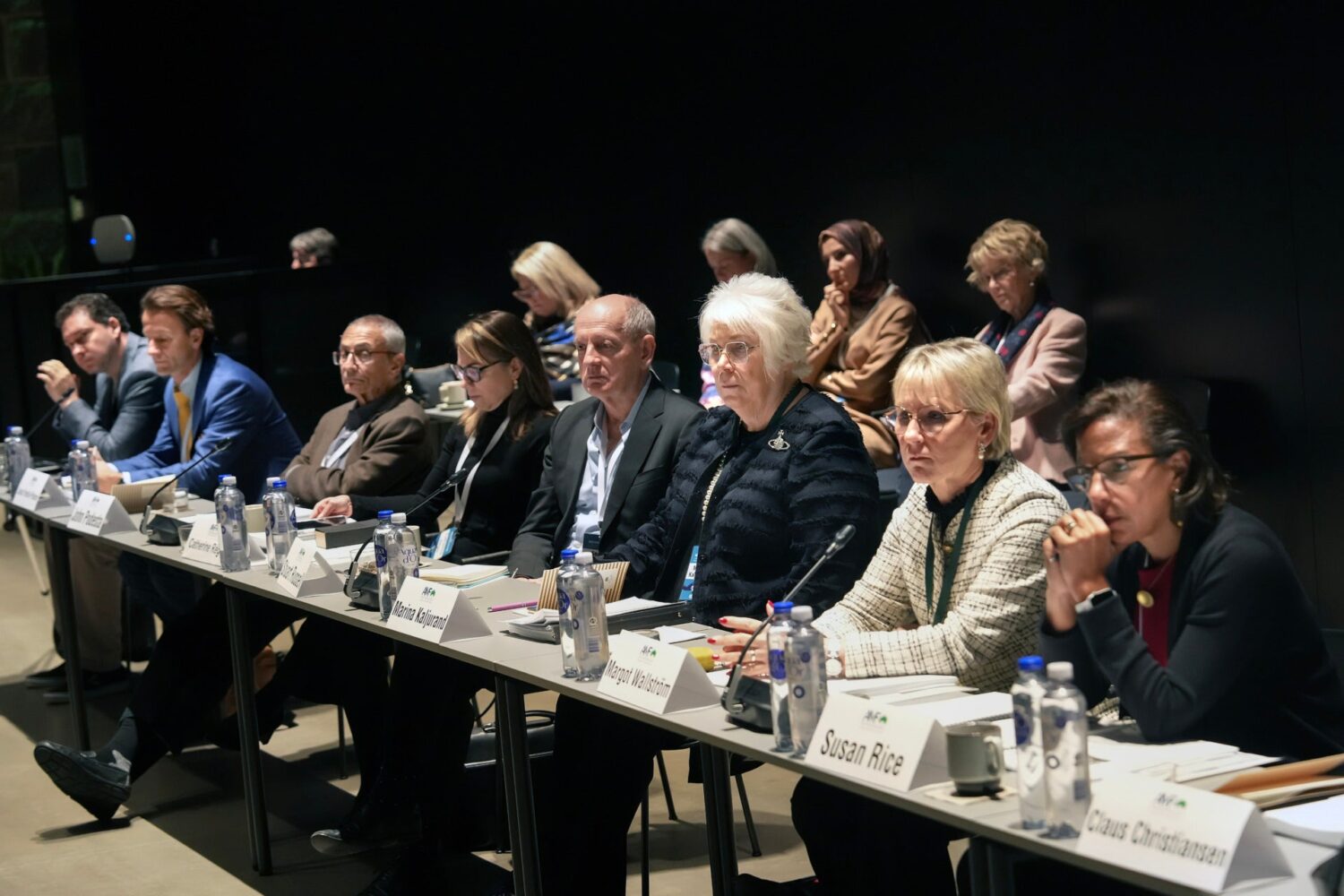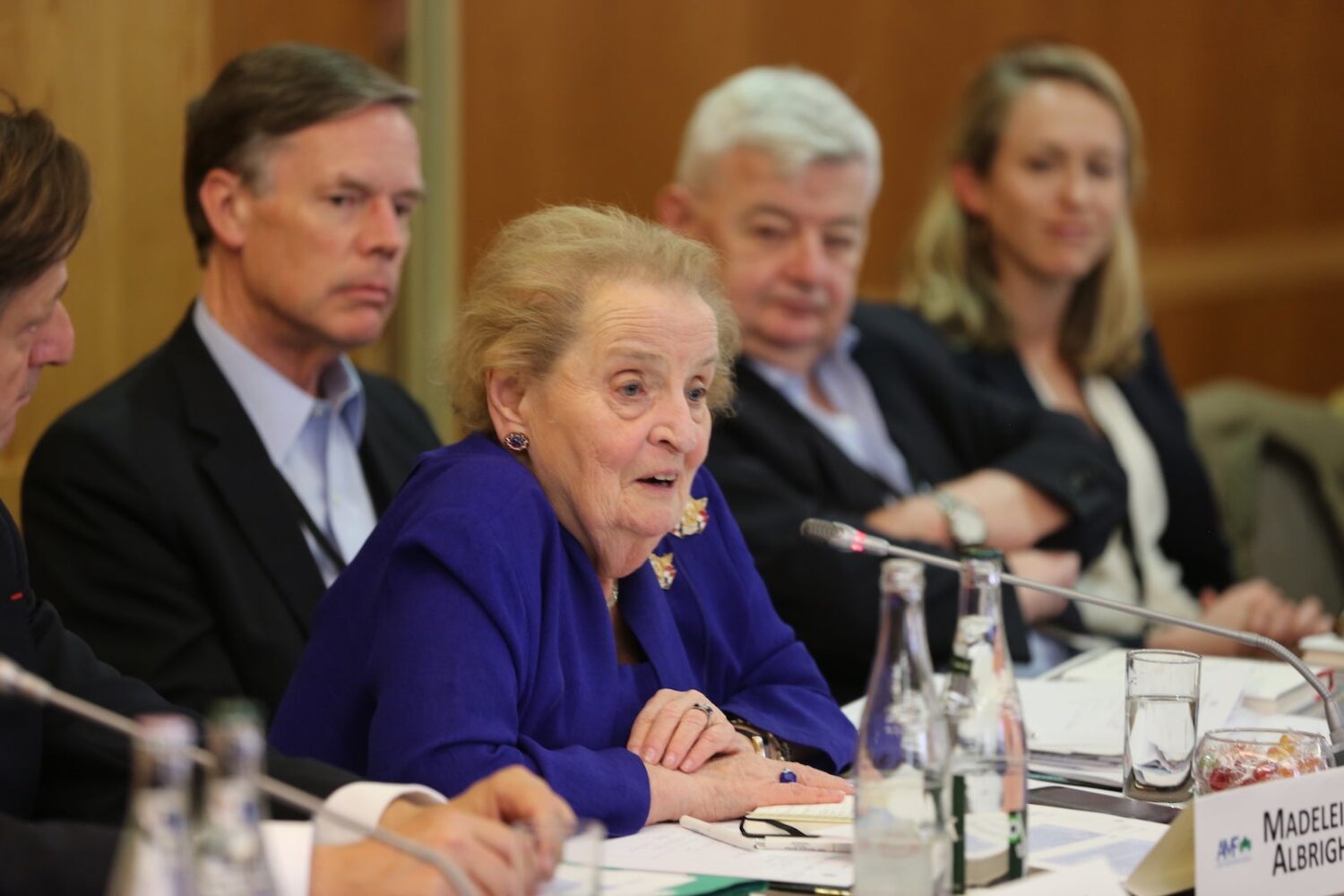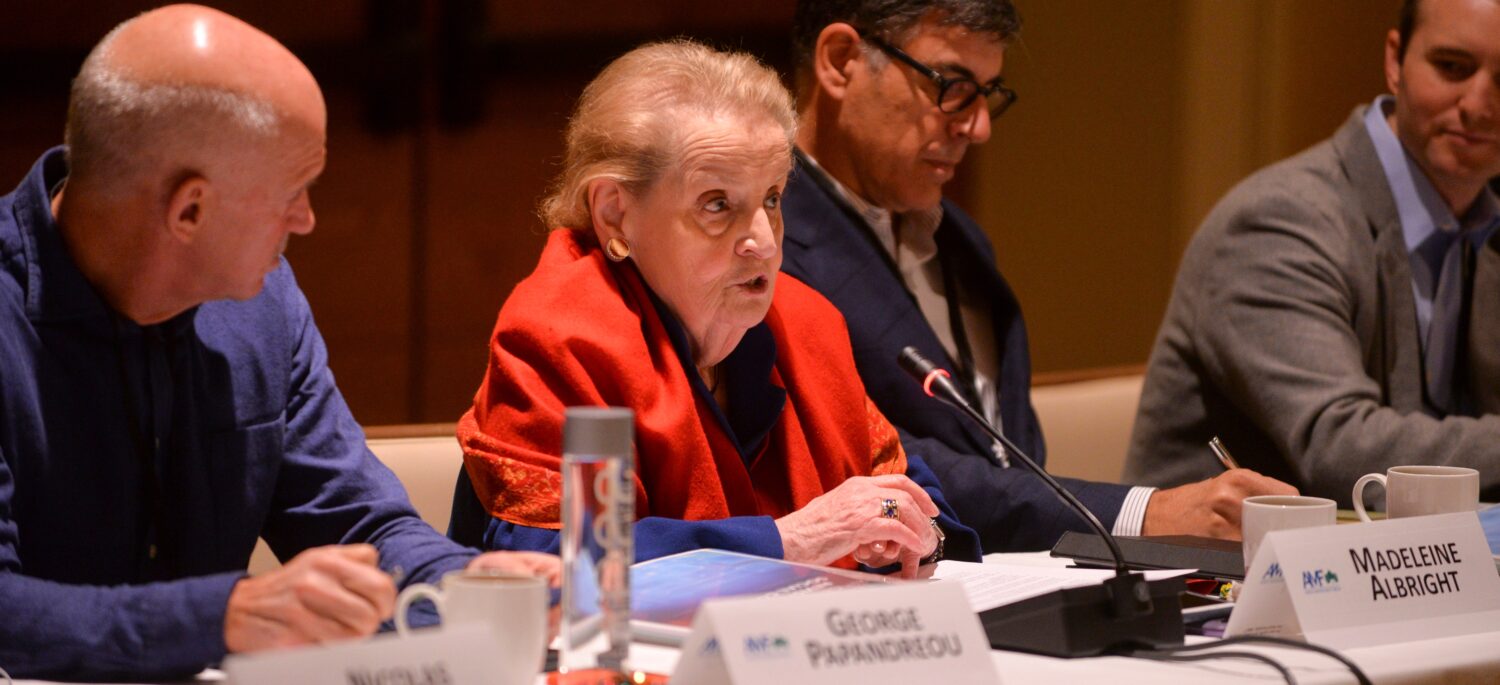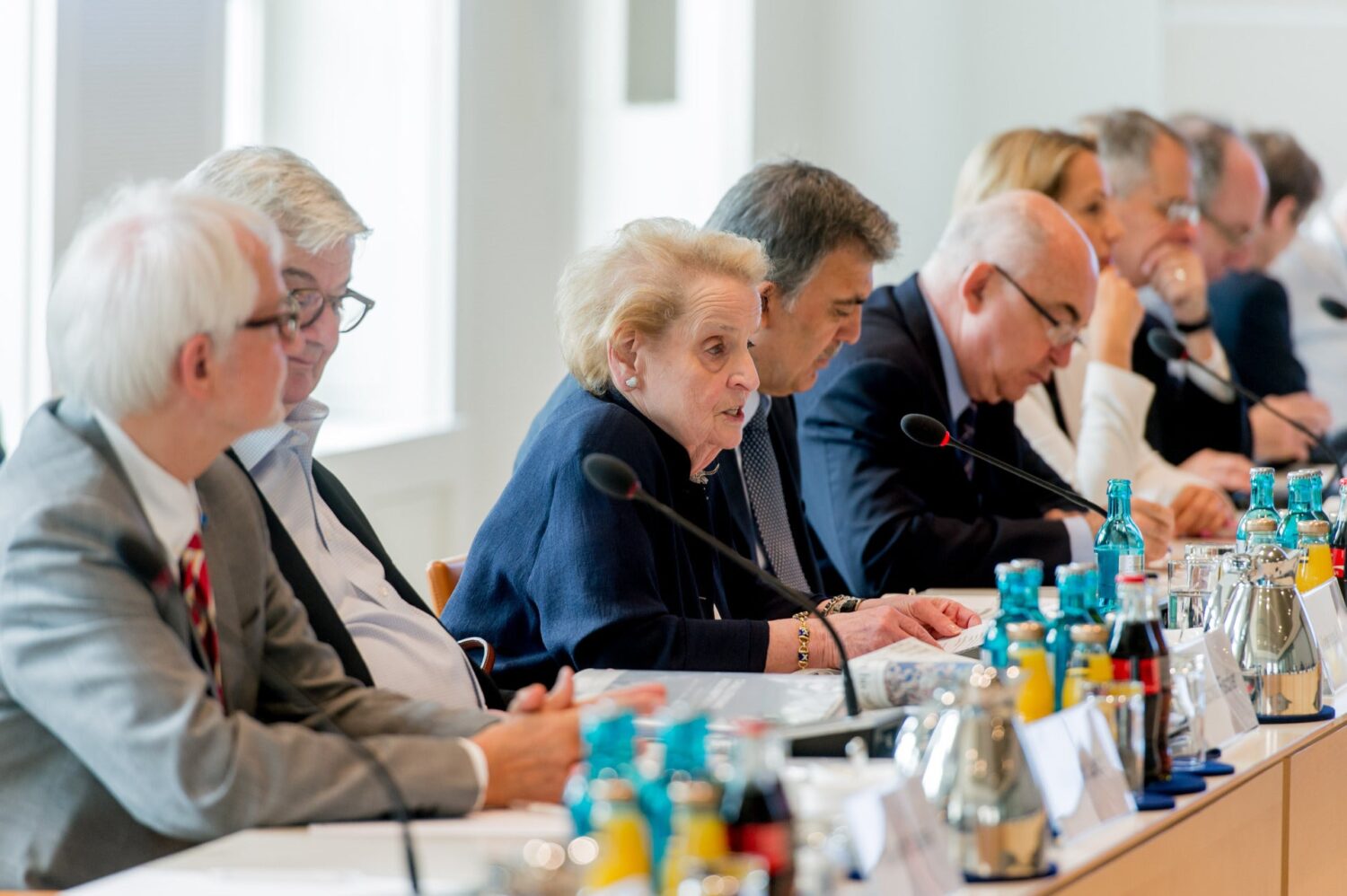Following on the previous meeting in The Hague that examined the loss of faith in international institutions, the Ministers met in Copenhagen to narrow their focus and produce meaningful ideas on ways to strengthen these institutions and increase their effectiveness, specifically in the areas of peace and security. The sessions explored United Nations Secretary-General Ban Ki-moon’s vision for his second term at the helm of the UN and looked at key operations including peacekeeping, collective security, economic stabilization, and the UN’s role in climate change policy making. Acknowledging the lack of faith in established international organizations, the group asked whether states should be seeking answers outside this framework and whether that would help or harm the international community’s ongoing efforts in achieving a more peaceful and secure world. Instrumental to the group’s three-day deliberations about this overarching and difficult question was the participation of key outside experts such as NATO SACEUR Admiral James Stavridis, U.S. Deputy Secretary of Homeland Security Jane Holl Lute, and President of the Institute for Liberty and Democracy Hernando de Soto, and visits by Danish officials such as Prime Minister Helle Thorning-Schmidt and Minister for Economics and the Interior Margrethe Vestager. One of the important outcomes of the meeting was a joint decision to prepare and present a detailed letter to the Secretary-General as he begins his second term to lay out possible areas for cooperation on the Secretary-General’s Action Plan priorities and offer concrete suggestions on how to achieve maximal UN effectiveness. This meeting also produced an Arctic working group, to be chaired by Niels Helveg Petersen, and ideas for a series of op-eds that will be published throughout the year, around important international events, to optimize the reach and impact of the ministers’ collective voice.In 2003, former U.S. Secretary of State Madeleine Albright conceived the Aspen Atlantic Group (now known as the Aspen Ministers Forum), an assembly of former foreign ministers from around the world and across the political spectrum. Building on a history of constructive negotiations, policy acumen, and continued influence as members of parliament, advisors to governments and political parties, and opinion leaders, these former ministers are uniquely positioned to leverage their experience and insight to promote a more candid, open, and collaborative transatlantic exchange.
The mission of the Aspen Ministers Forum is to develop concrete, non-partisan recommendations to help the two sides of the Atlantic address the next frontier of global challenges. It accomplishes this through several specific features: involvement of and access to senior officials, both in and out of government; targeted press coverage; and first-hand experiences, which Minister’s take back to their home countries and apply in their daily work.
The AMF convenes once or twice a year in countries ranging from Germany and Denmark to the U.S. and Canada. Each meeting also includes outside experts from the executive and legislative branches of government, think tanks, academia, and the media, with special expertise on the sessions’ topics of discussion. Working materials are developed by group members and an array of both established and rising policy experts.









